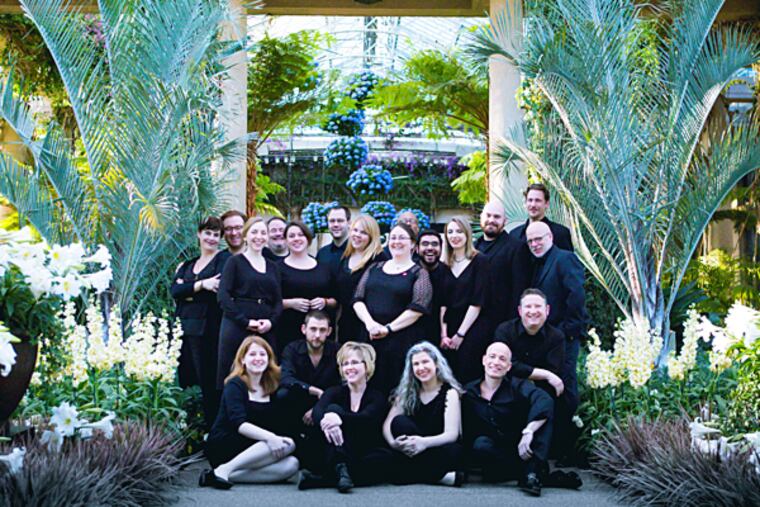Review: The Crossing looks back (a little)
Though not inclined to look back, the Crossing choir and its founder/director, Donald Nally, have roughly 10 years of mutual history, which explains why Sunday's opening of the annual Month of Moderns festival at the Presbyterian Church of Chestnut Hill was often retrospective, if never tame.

Though not inclined to look back, the Crossing choir and its founder/director, Donald Nally, have roughly 10 years of mutual history, which explains why Sunday's opening of the annual Month of Moderns festival at the Presbyterian Church of Chestnut Hill was often retrospective, if never tame.
Some Crossing followers might have been shocked that two pieces dated to the 1990s, the more substantial being David Shapiro's A Century of Aprils, a Mass setting of sorts, that was written for one of Nally's previous choirs, the Bridge Ensemble. It, and the 1996 In memoriam reducere studemus by William Brooks, showed the composers joining distant centuries with exceptional bravery.
Brooks focused on composer Anton Webern's death in a mishap at the end of World War II. The composer's terse, abstract atonality was expressed by a challenging keyboard part, played with authority by Laura Ward, joined with the more flowing musical manner of 16th-century Renaissance master Heinrich Isaac (Webern's doctoral dissertation topic). The overall package wasn't always cohesive, but this unlikely marriage would have been far less interesting had the composer diminished either musical polarity to make matters easier.
Shapiro's piece had the general outlines of the Mass, though with litanies, Einstein quotes, and verse by Terry Kirts. The "Dies Irae" section, often portrayed with musical hellfire, wasn't about external forces devouring guilty sinners but had a solo trumpet (Michael Jones) behaving like a nagging internal conscience.
New works weren't outclassed. Michael Gilbertson's quiet, introspective Where the Words Go got lost in the sequencing, but Matthew Brown's Another Lullaby for Insomniacs employed traditional SATB vocal writing with intense word settings (about the moon behaving like a coldhearted woman) and highly original vocal gestures.
Once again, Nally unveiled a little-known composer with an astonishingly original compositional voice - Joel Puckett, who teaches at the Peabody Conservatory, and whose I enter the earth was a Crossing commission to a text from the shamanistic !Kung culture (its people live nomadically in Africa's Kalahari Desert) about retreating into the earth. The piece starts with a sharp focused "Oooh" sound (similar to the familiar mantra "Om"), throwing open the door to a rich harmonic world that included ticklish soprano-range triplets framing long-breathed musical undercurrents. Elsewhere, an "Oooh" would transform into a cloud of microtones with hallucinatory speed - handled with ease by the Crossing, like electronic effects achieved with the turn of a knob.